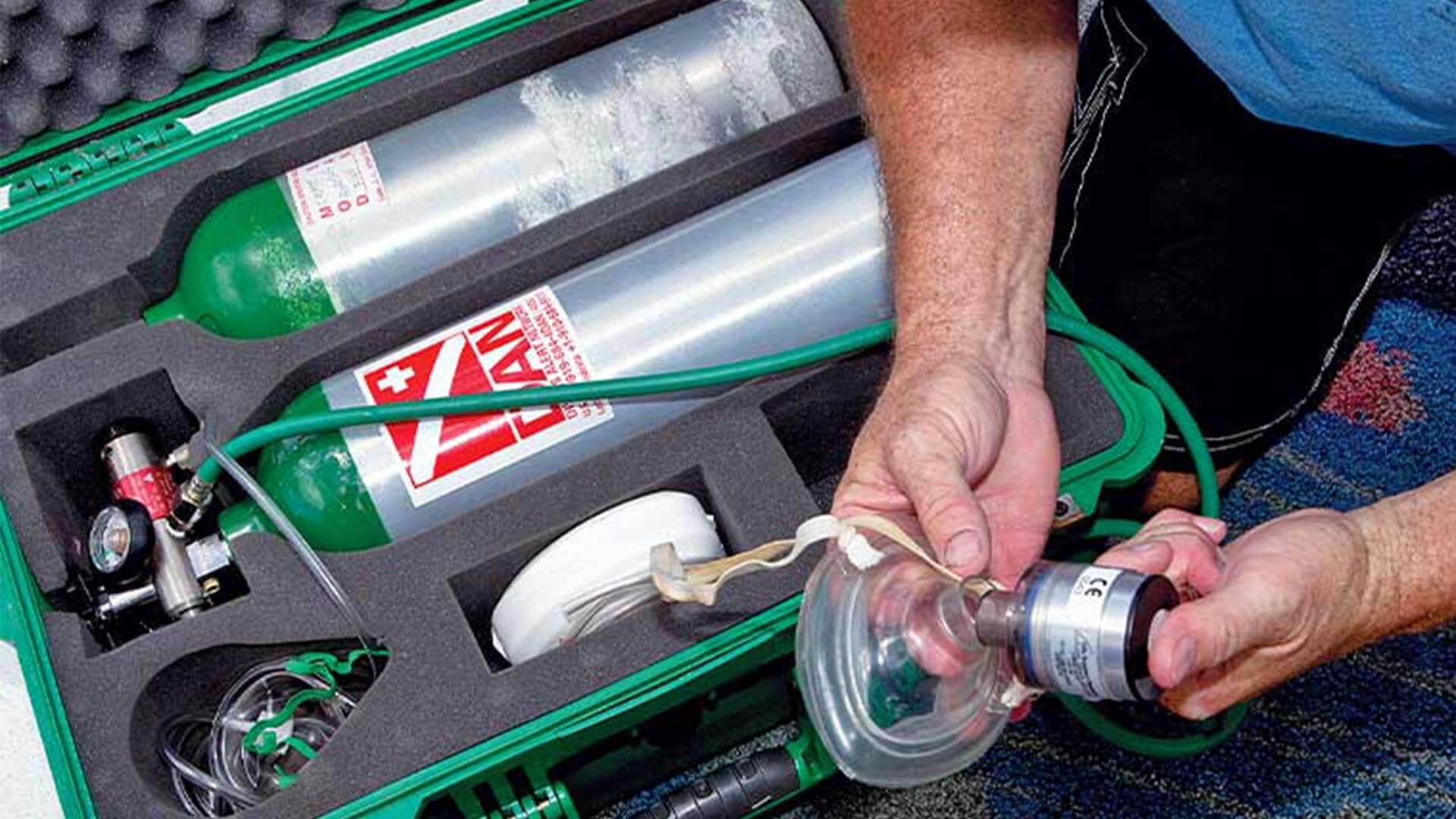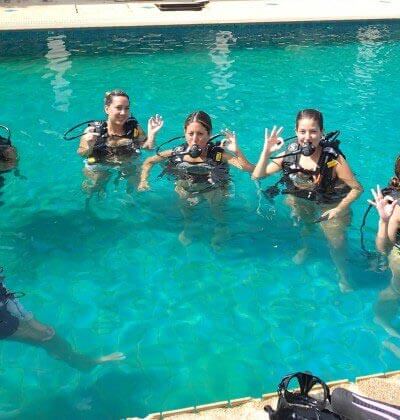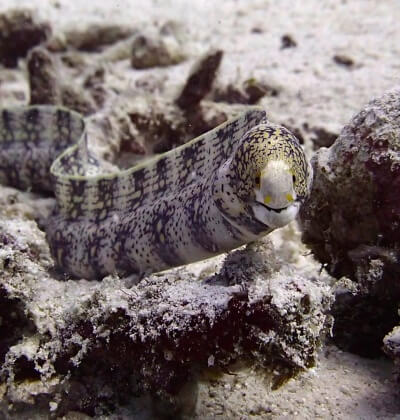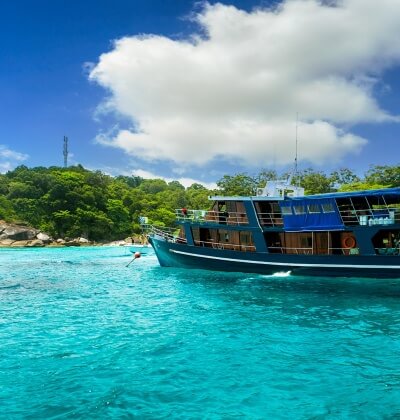The Benefits of Oxygen for Scuba Diving Illnesses
Scuba diving is a breathtaking adventure that allows us to explore the wondrous world beneath the seas. However, as with any exhilarating activity, scuba diving comes with its own set of inherent risks and challenges. From time to time, thankfully rarely, scuba diving accidents or illnesses do occur. These can range from minor discomfort to life-threatening situations. Forunatelty one essential tool that plays a crucial role in mitigating the consequences of diving-related illnesses and that is oxygen or more specifically first aid oxygen (FAO2). In this blog, we will look at the benefits of oxygen for scuba diving illnesses.
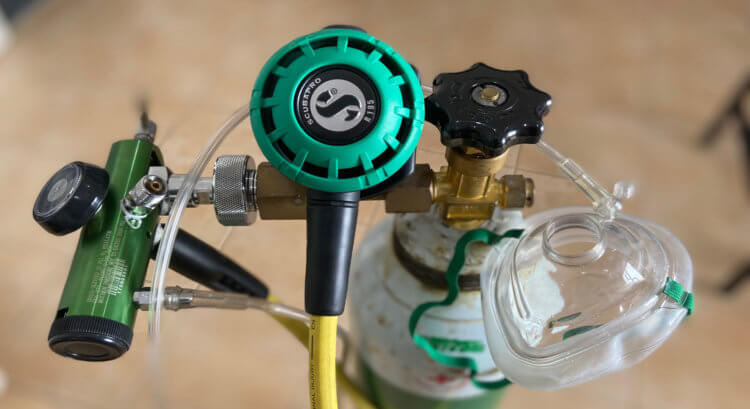
PADI Oxygen Provider Aussie Divers Phuket
Oxygen Administration: Immediate Relief
The inhalation of 100 percent oxygen (FAO2) works by accelerating the diffusion and elimination of the excess nitrogen absorbed during scuba diving. This improves circulation (thereby promoting reoxygenation of tissues) and reducing swelling and associated inflammatory responses. This can produce symptom relief and, sometimes, complete resolution of symptoms.
When it comes to diving-related illnesses, time is important. Oxygen, should be administered promptly, and acts as a first-aid measure, providing immediate relief for various conditions such as decompression sickness (DCS), arterial gas embolism (AGE), and pulmonary barotrauma.
Your can learn more about the administration of oxygen in the PADI Oxygen Provider Course.
Decompression sickness, often referred to as “the bends,” is the most common of scuba diving illneses. This occurs when nitrogen bubbles form in the bloodstream and tissues due to rapid ascent (18 metres/minute or faster) or inadequate decompression. Oxygen therapy helps eliminate these bubbles by increasing the partial pressure of oxygen in the body, facilitating faster elimination of nitrogen.
Arterial gas embolism or AEG, is considered the most serious of scuba diving illnesses and is a condition that can arise when air or gas enters the bloodstream through lung tissue damage. The administration of 100% oxygen helps to reduce the size of the embolism and improve blood flow to vital organs, preventing further damage.
Pulmonary barotrauma or lung expansion injuries is a lung injury resulting from a rapid ascent or breath-holding during ascent. Oxygen therapy assists in alleviating symptoms and aids in the healing process by increasing oxygen levels and promoting tissue repair.
In light of compelling evidence in favor of oxygen first aid, one of DAN’s stated missions is to ensure that oxygen first aid equipment and people trained in its use are at every dive site, which means dive instructors and even divers may need to own their own oxygen units, which they care for and maintain.
Oxygen as a Supportive Therapy
Beyond immediate relief, oxygen also serves as a supportive therapy for various other scuba diving illnesses. Here are a few examples:
Carbon Monoxide Poisoning: Faulty or improperly maintained equipment can lead to carbon monoxide (CO) poisoning during a dive. Oxygen administration assists in removing CO from the bloodstream, preventing further damage and reducing the risk of long-term effects.
Hypothermia: Cold-water diving exposes divers to the risk of hypothermia, a condition where the body loses heat faster than it can produce it. Providing oxygen warms the inhaled air, reducing the chilling effect on the body and helping to maintain core temperature.
Near Drowning Incidents: In situations where a diver experiences a near-drowning incident, oxygen therapy plays a vital role in minimizing brain damage and promoting recovery. Oxygen aids in restoring oxygen levels to the brain, supporting cellular functions and mitigating the potential long-term effects of oxygen deprivation.
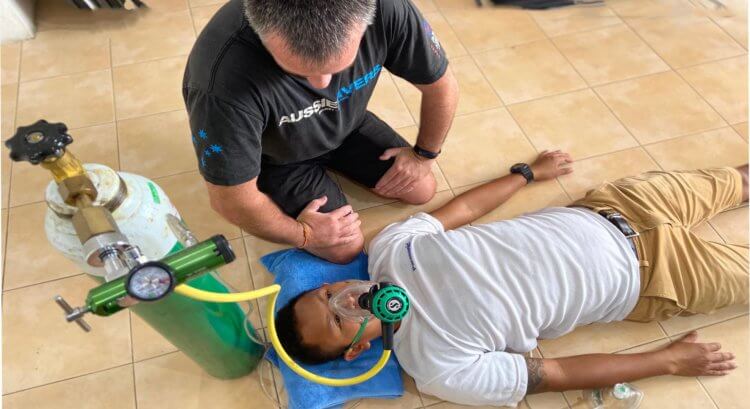
PADI O2 Provider Aussie Divers Phuket
How long to Administer Oxygen for
Divers Alert Network state: The initial duration of FAO2 therapy often depends on the available supply. Thirty minutes might be considered a desirable minimum duration. In some cases, symptoms resolve soon after the start of FAO2 and may return subsequent to cessation of oxygen therapy. Even after treatment in recompression chambers, symptoms may recur in 15 to 40 percent of cases. Thus, to make FAO2 more efficient, it should be used more aggressively. For example, if a diver presents with neurological symptoms, the duration of FAO2 should last at least 90 minutes, even if the symptoms resolve after the first few minutes of breathing oxygen.
Conclusion
Oxygen plays a pivotal role in managing scuba diving illnesses, acting as a critical tool for both immediate relief and supportive therapy. Its ability to aid in the elimination of nitrogen bubbles, reduce the size of gas embolisms, promote tissue repair, aids the recovery of a ill diver. Moreover, speedy oxygen administration ensures a higher chance of positive treatment outcomes.
Posted in Diving Health on .

